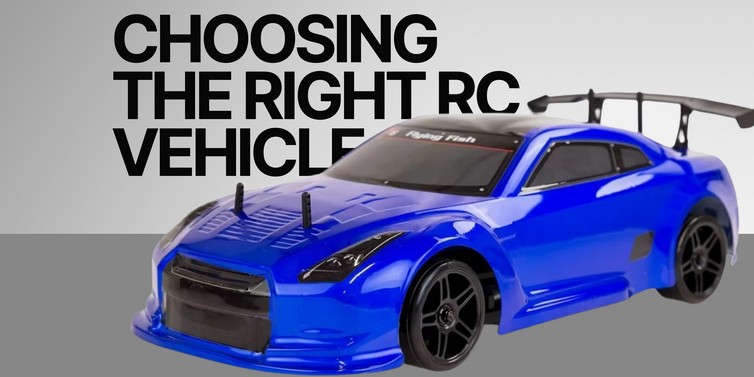What RC car should I buy is a question that often puzzles many beginners starting into the RC hobby. The best way to decide which RC car would work best for you is by considering your needs. Whether you want a car for racing, off-road driving, or just something fun to drive around the house with, there are different factors that will help you make the best decision for your needs. We’ll go over what these factors are and how they matter when deciding what type of RC vehicle you want to buy.
We will consider these five broad categories of RC vehicles: Short course trucks, Stadium trucks, Monster trucks, Rock crawlers and Buggies.
Where are you going to use it?
The type of surface you’ll be driving on often dictates the type of RC car you should get. RC cars are generally designed for on-road and off-road use. However, the type of ground you will be driving on will have a major impact on how you choose your car. The most common surfaces that you will come across to drive your RC car are dirt tracks, grass, sand, gravel, asphalt, concrete, and other hard surfaces. When you’re looking for a car, be sure to take these surface types into account to decide what type of car will be best for you.
Keeping in mind the type of surface the RC car is meant for will help prevent buyer’s remorse and ensure that your investment is the right one.
Grass

Grass is probably the most common surface visited by RC drivers. Grass is obviously a very different terrain than dirt or sand but offers high resistance when driving through it, especially dense or tall grass.
Types of RC cars suited for grass:
- Stadium truck
- Rock crawler
- Short course truck
- Monster truck
Pavement
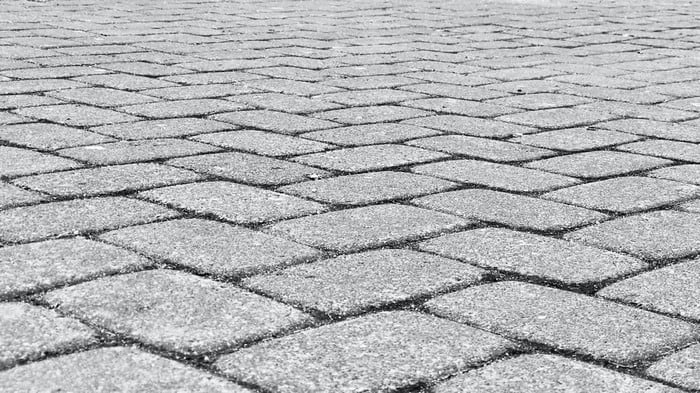
If you plan on using your RC car on paved roads, then you can get away with buying almost any RC car – except maybe an RC crawler. You can have fun driving an RC car on paved surfaces as they offer less friction. The downside is that they don’t provide much traction so if you want to take your car fast, then you’ve got to pay attention to your speed control settings.
If you want to drive your car on pavement but also enjoy off-roading, then you might want to get an RC buggy. Buggies are usually equipped with larger tires than regular RC cars and are built to handle the extra weight.
Types of RC cars suited for pavement:
- Stadium truck
- Buggy
- Short course truck
- Monster truck
- Rock crawler
Sand

Driving on sand dunes is another great way to enjoy RC vehicles. Sand dunes are a popular place for RC enthusiasts because they allow them to drive their cars without worrying about getting stuck. They are also perfect for beginners who want to learn how to drive an RC car.
However, sand dunes aren’t suitable for all types of RC cars. A lot of RC cars are not made to deal with the extra weight of sand. So, if you plan on driving your RC car on sand dunes, you should consider investing in a buggy first.
Types of RC Cars suited for sand dunes:
- Stadium truck
- Buggy
- Rock crawler
- Short course truck
- Monster truck
Further reading
Best RC Cars for Beginners
Best RC Drift Cars
Best RC Excavators
Best RC Monster Trucks
Dirt / Gravel
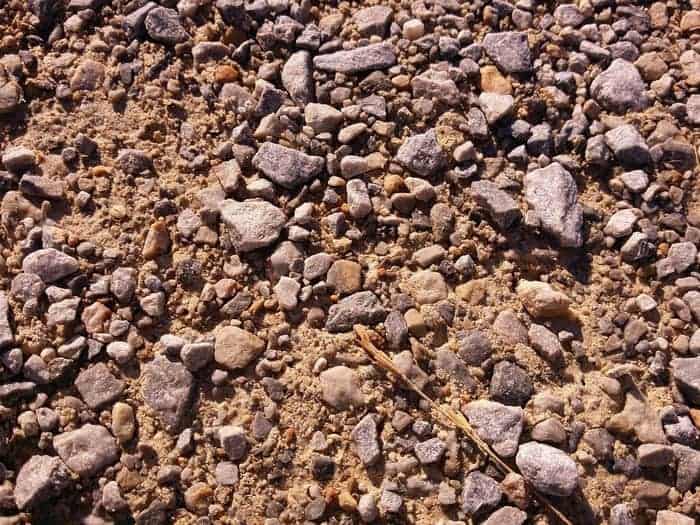
Most people prefer to drive their RC cars on dirt or gravel. This is because these surfaces give you a greater sense of control. Dirt and gravel also absorb shock and vibration from the wheels. This means that your RC car won’t feel like it’s bouncing up and down every time you hit a bump in the road.
You’ll find that most RC cars are made to operate well on dirt and gravel. But, there are still a few exceptions. Some RC cars are only made to work on smooth surfaces such as asphalt and concrete. These cars may not be able to cope with the bumps and dips on the surface.
Types of RC Car suited for dirt/gravel:
- Monster truck
- Short course truck
- Stadium truck
- Buggy
- Rock crawler
2WD or 4WD RC Car
Just like the cars we drive every day, all RC car models are also available as either 2WD (2 wheel drive) or 4WD (4 wheel drive or 4×4). What it indicates is the number of wheels that are connected to the drivetrain and spin under acceleration. On the outside, there is no visible difference between the two configurations but underneath 2WD and 4WD can be quite different.
2WD RC Cars
2WD cars are the most common type of radio-controlled cars that you may find in the market. Most often these are rear-wheel driven that is the only the rear wheels are attached to the drivetrain.
Here are some pros and cons of a 2WD RC car:
Pros
- Lower initial cost
- Lower maintenance
- Usually faster out of the box
- Lighter in weight
- Longer run time
Cons
- Less traction
- Less control & stability
4WD RC Cars
4WD can make a big difference for off-road driving. They offer better traction and work great if you’re driving in loose dirt, sand, or gravel. If you want to drive on trails or off-road, 4WD is the best type of RC vehicle to buy.
Here are some pros and cons of a 4WD RC car:
Pros
- Better handling in rougher terrain
- Better quality differentials and drivetrain
- Tougher parts
- Better weight distribution
Cons
- Higher cost
- Require more maintenance
- Front tires wear out faster
- Heavier weight
- Lower run time
Nitro vs Electric RC Cars
The main difference between electric and nitro-powered RC is their power output. ‘ There is an electric motor in the Electric-powered RC, that needs a battery pack to run. Nitro RC’s engine runs on nitro methane-based methanol-based fuel.
Electric Motors
Electric motors come in two types: brushed and brushless motors. Brushed motors are usually found in toy-grade RC vehicles but may also feature in some hobby-grade cars. Brushless motors are more powerful and feature in the higher-end RC models.
Pros
- Ideal for beginners
- Less noisy
- Lower cost
- Reliable, simpler to maintain
- No smell of fuel
Cons
- Charging takes longer (than fuelling up!)
- May not be as fast as Nitro
- LiPo batteries require care
Nitro Engine
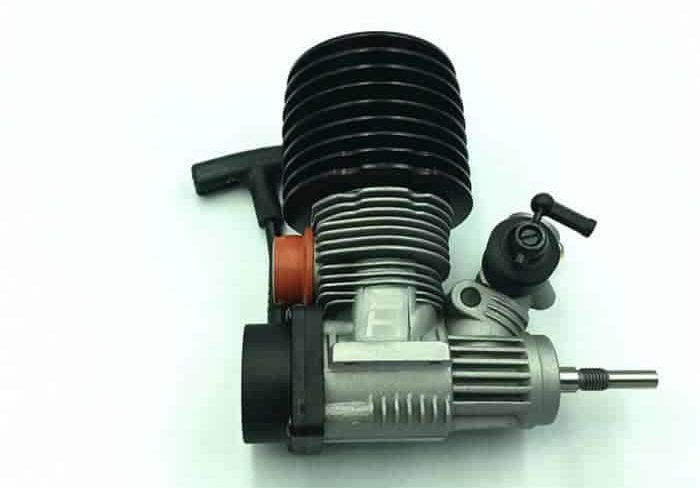
Nitro engines, unlike motors, use gasoline instead of batteries to run. Like a full-size gasoline engine, the Nitro has a carburetor, air filter, clutch, piston, glow plug and crankshaft. In addition, there is a fuel tank and an exhaust.
Pros
- Suitable for intermediate to advanced users
- Speed
- Work like real cars
- Realistic driving experience
- Loud noise (if you like it)
- No wait time to refuel
Cons
- Loud engine (if you prefer quiet)
- Costlier overall
- Needs more cleaning
- Some technical knowledge is required
Brushed vs Brushless: What Type of Motor Do You Want?
The first thing you should look at when choosing an RC car is whether it uses a brushed motor or a brushless motor. The brushed motor is much cheaper than the brushless one. However, they tend to have lower performance levels. A brushed motor is good for beginners who just want to get started quickly.
Brushed motors: Pros & Cons
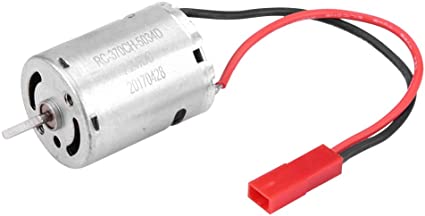
Brushed motors are the cheapest and most common type of RC car motors. They provide good power and control, and they’re easy to use. Brushed motors are the best option for most people because they’re simpler and easier to use. If you’re new to RC cars or don’t need something with a lot of power, brushed motors are the best choice.
Pros
- More powerful
- More torque
- Greater efficiency
- Noise reduction
- Require more cleaning
Cons
- Higher price
- Difficult to repair
- Requires more maintenance
Brushless motors: Pros & Cons
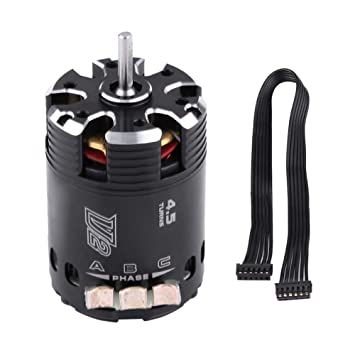
Brushless motors are more expensive and more complicated to use, but they provide more power and durability than brushed motors. In contrast to brushed motors, brushless motors have a more efficient way of transferring power from the battery to the motor coils. They use permanent magnets rather than brushes. This means that the motor won’t wear down as quickly and will continue to work for an extended period of time. If you want something that will last a long time or you know how to use one, brushless is the way to go.
Pros
- More powerful
- More durable
- Longer run time
- Last longer
Cons
- Can cost more
- Not ideal for beginners
